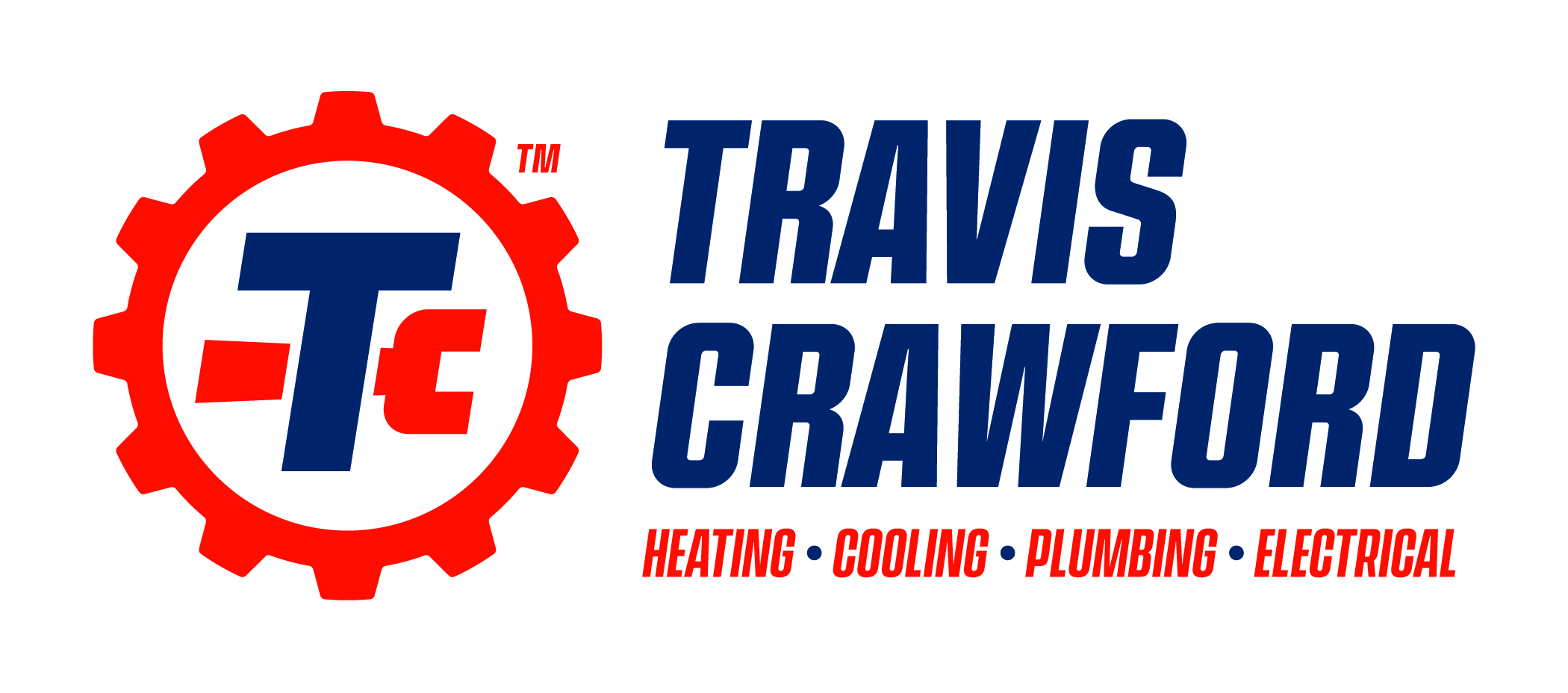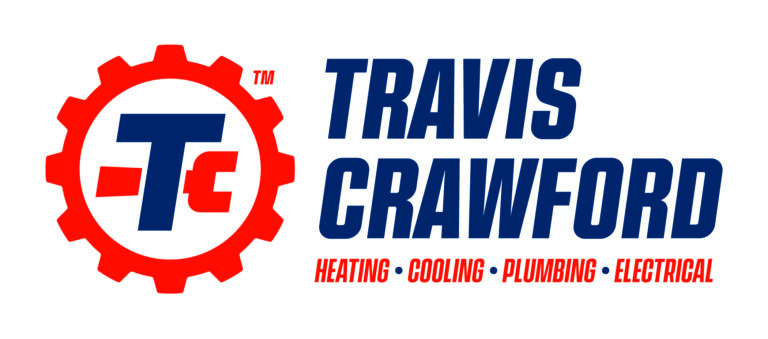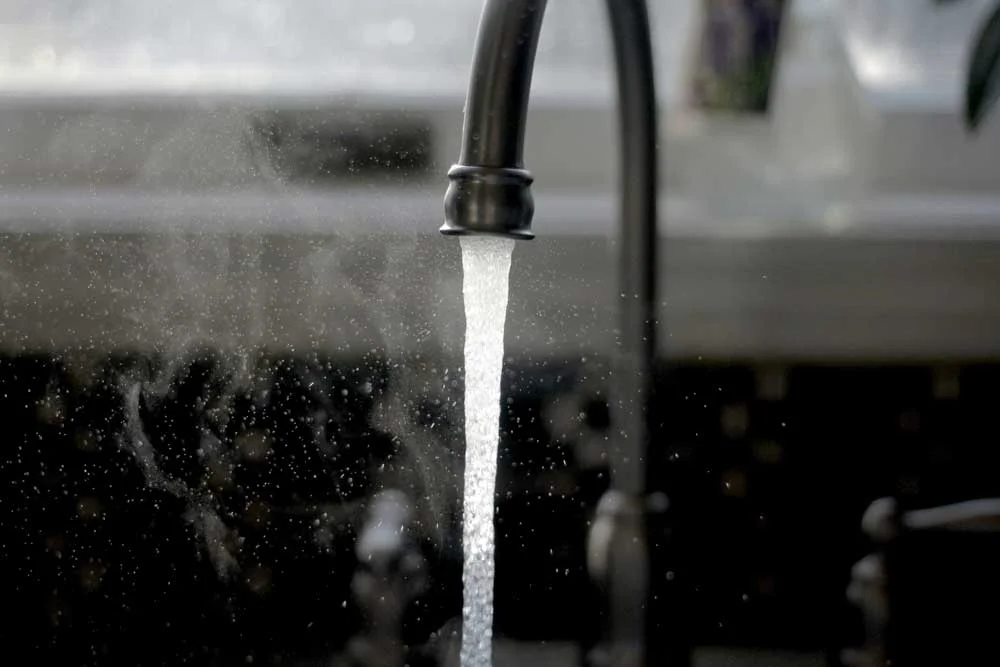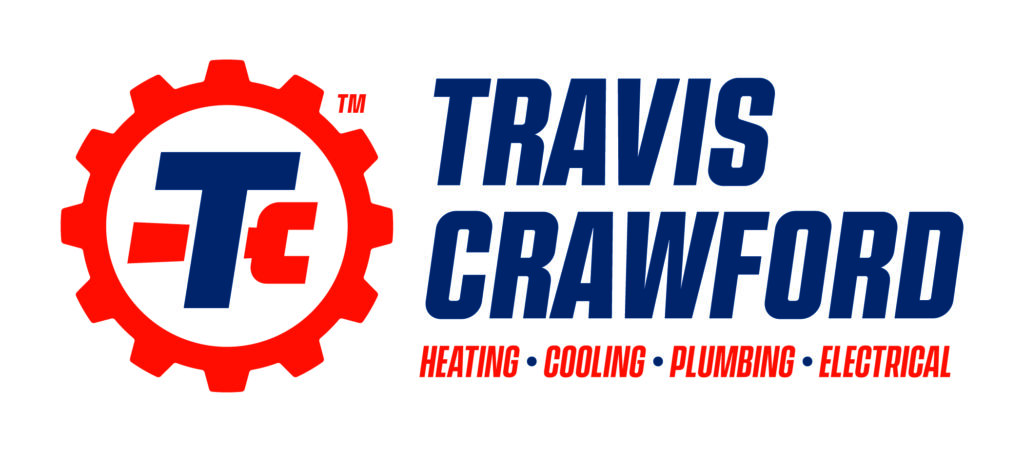If water’s puddling on your kitchen floor or below the kitchen in your basement, it’s often a sign that your kitchen sink is leaking. While mopping up is part of your routine, the last thing you want is a leaking kitchen sink that’s causing damage to your home somewhere in the Charlotte metro area.
It’s essential to act quickly, whether the water is coming from the drain pipe and leaving food residue in unusual places or fresh water pooling. At Travis Crawford Heating, Cooling & Plumbing, we know how important it is to fix plumbing problems quickly in Charlotte. After all, a small leak can lead to a hefty water bill.Whether the issue is worn-out faucet gaskets, a cracked sink basin, or a clogged drain that needs professional drain cleaning services, you’ll need professional plumbing services to fix it. We serve the entire region, from Concord and Gastonia to Rock Hill or Huntersville. Let us take a look and help you figure out which of the common kitchen sink leaks is leaving you with a mess.
Reason 1: Worn-Out Faucet
Every faucet in your home with a drip costs an average of a dollar per month, but those drips worsen over time. Whether the issue is a broken seal or worn gasket, you could see water pooling at the base whenever the faucet is on, in addition to drips. If you can’t figure out why your faucet is leaking, our faucet repair experts can help replace any worn parts or install a new faucet to eliminate the problem.
Reason 2: Loose or Damaged Sink Strainer
The sink strainer is the mesh between the sink drain and the drain pipe that carries your wastewater. A loose sink strainer that isn’t tightly fitting can let larger particles into the drain pipes, causing clogs and leaks around the drain. Resealing or replacing the sink strainer is a fast way to resolve the issue.
Reason 3: Faulty Pipe Connections
If the pipes under your sink aren’t watertight, it’s usually a joint issue. You can fix a kitchen sink leak by tightening the connections with plumber tape or a wrench. Faulty pipe connections are generally an easy DIY repair if you have experience working with pipes.
Reason 4: Clogged or Damaged P-Trap
The P-trap is the shield between your home and the smell of the sewer line connected to it. It prevents sewer gas from reaching your home interior by creating a water seal in the curved portion of the pipe. If the P-trap clogs or develops a crack, leaking isn’t far into the future.
Some of the most common signs of a problem with the part include slow sink drains, noxious odors, or visible leaks. The fix for a P-trap leak is usually simple: clean or replace it. If it’s clogged, clear the clog; if it’s cracked, put in a new one.
Reason 5: Worn-Out Sealant or Caulk
Not all leaks are active. The sealant or caulk around your sink basin can let water get into places it shouldn’t, an example of a passive leak. The sealant surrounding it keeps the water in the basin and directs it to the drain pipe.
If there’s water pooling under or around the sink base or visible damage to the caulk, it’s a sign that the sealant around your sink needs a refresh. Take out the old caulk and put in a fresh bead.
Reason 6: Leaking or Cracked Sink Basin
Even if your plumbing is in great shape, your sink basin might develop a crack or leak. This is especially true for porcelain, natural stone, or other natural materials. Stains in the sink basin or water under the sink that isn’t coming from a broken seal or misaligned pipes could result from a broken basin. In general, this means you’ll need to replace it.
Preventative Tips
With all the possible sink leak causes, it’s often best to keep an eye on your sink and check under and around it for signs of kitchen sink leaks. Pay close attention to the base of the faucet, floor, and counters surrounding the sink basin. Early leak detection can save you a lot of hassle and prevent bigger problems.
Contact Travis Crawford Heating, Cooling & Plumbing for professional help if you notice anything that might indicate a leak. Our licensed plumbers can help prevent sink leaks or fix those you already have.
Conclusion
No matter where you are in Charlotte or Fort Mills, SC, Travis Crawford Heating Cooling & Plumbing is just a click away. We excel at diagnosing leaks and implementing the right repair. Contact us today for a fast, honest estimate and same-day repair services.
FAQs
How Do I Know If My Kitchen Sink Leak Is Serious?
A kitchen sink leak is considered serious if it’s causing noticeable damage, like water stains, mold growth, or pooling under the sink. If the leak persists despite tightening connections or applying sealant, or if it’s coming from behind the walls or under the flooring, it could lead to structural damage. In these cases, it’s best to contact a professional plumber to assess the situation.
Can I Fix A Leaking Kitchen Sink Myself?
Yes, minor leaks such as a loose faucet or a misaligned pipe connection can often be fixed by homeowners with basic tools and knowledge. However, for more complex issues like cracked pipes, faulty P-traps, or leaks that are difficult to pinpoint, it’s best to call a professional to ensure the repair is done correctly and to prevent further damage.
How Often Should I Inspect My Kitchen Sink For Leaks?
It’s a good idea to inspect your kitchen sink for leaks at least once a month. Regularly check around the faucet base, under the sink, and the caulking or sealant around the sink basin for any signs of water damage or moisture buildup. Early detection can prevent more serious issues down the line.
What Should I Do If I Can’t Locate The Source Of The Leak?
If you’re unable to find the exact source of the leak, it’s best to contact a professional plumber. They can perform a thorough inspection, including leak detection methods, to identify hidden leaks that may not be visible, such as those behind walls or in hard-to-reach pipes. Acting quickly can prevent more extensive damage to your home.




